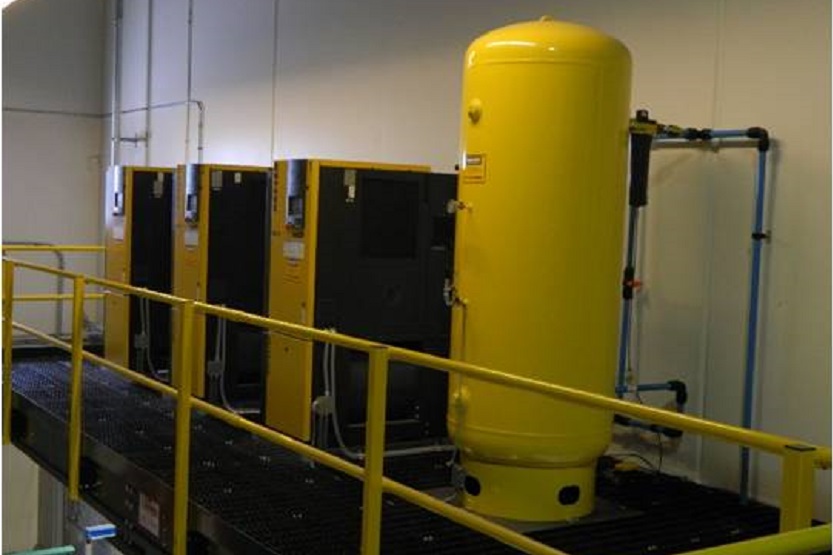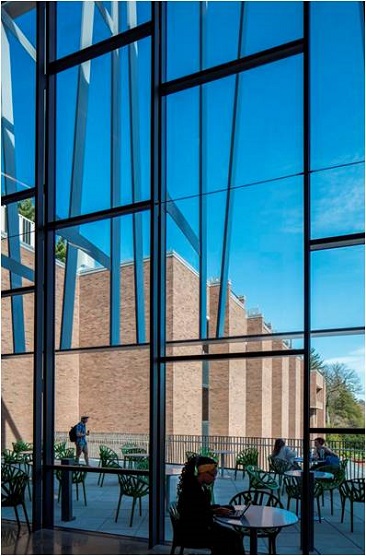
Kaeser Compressors - UniFirst Industrial Laundry Distribution Center
© AHK USA - New York
Energy Efficiency Achieved
After implementing Kaeser's recommended solution, UniFirst reduced their Total Energy Consumption from 223,093 kWh/ yr to 120,461 kWhr/yr. Energy costs were cut from $16,732 annually to $9,035. This is especially significant since UniFirst's demand for compressed air actually increased after installing the new equipment. Additionally, the KPI of specific performance (kW/100 cfm) was reduced from 40.98 kW/100 cfm to 21.56 kW/100 cfm. Learn more about the project in the brochure for the technology showcase.

Vassar College Integrated Science Center
© AHK USA - New York
About the technology showcase "Energy Efficiency Award Challenge - German Innovation in U.S. Buildings"
The Award Challenge was created as part of the German Energy Solutions Initiative, sponsored by the German Ministry for Economic Affairs and Energy, to recognize the positive impact German businesses have in the U.S. building sector. It is designed to help German companies strengthen their position in the U.S market and make new connections within the U.S. sustainable building industry. The competition provided participating German companies with the chance to showcase their technologies and services that focus on increasing overall building performance across the U.S. The five finalists of this years’ challenge were: 1100 Architect, Arnold Glas, Kaeser Compressors, Meteoviva and Transsolar. These five presented themselves and their projects in front of the jury and audience. After careful consideration, two winners were selected: MeteoViva and Transsolar.
Current market trends suggest that building owners and managers will invest $960 billion between now and 2023 on “greening” their existing building infrastructures. In terms of growth throughout the sustainable building industry, the U.S. is still lagging behind Germany and other European countries that prioritize reducing CO2-emissions. The aforementioned trends towards a more sustainable and energy efficiency-focused method of building, coupled with the exemplary efforts to prioritize developments in this industry throughout Europe, have created increasing market opportunities in the U.S. for German companies in this field. The Award Challenge aimed at providing both applicants and attendees with the chance to learn more about energy efficient solutions from German manufacturers, as well as how they are being implemented in the U.S. building sector.


